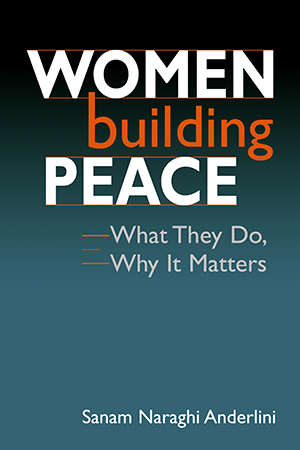How and why do women's contributions matter in peace and security processes? Why should women's activities in this sphere be explored separately from peacebuilding efforts in general? Decisively answering these questions, Sanam Anderlini offers a comprehensive, cross-regional analysis of women's peacebuilding initiatives around the world.
Anderlini also traces the evolution of international policies in this arena and highlights the endemic problems that stunt progress. Her astute analysis, based on extensive research and field experience, demonstrates how gender sensitivity in programming can be a catalytic component in the complex task of building sustainable peace—and provides concrete examples of how to draw on women's untapped potential.
Sanam Naraghi Anderlini is a research affiliate at the Center for International Studies, Massachusetts Institute of Technology. For over a decade she has worked with the UN, NGOs, and bilateral donors as an advocate, researcher, trainer, and writer on issues relating to women's participation in peace and security.
"Anderlini is uniquely qualified to write about women, peace, and security.... This is an excellent book."—Elisabeth Porter, International Studies Review
“Offers a vivid, comprehensive, and compelling account of the day-to-day efforts of women peacebuilders and leaves the reader enlightened and enriched.”—Julieanne Porter,
Gender & Development
"A must-read for anyone engaged in the study or practice of conflict resolution and peacebuilding who wants to know the full story.”—Donna Ramsey-Marshall,
International Journal on World Peace
"A detailed, multidimensional analysis of the contributions of ordinary women (teachers, social workers, doctors, mothers, etc.) to, as well as their potential in, peace-building security endeavors."—
Choice
"Anderlini moves beyond the well-tread path with this measured, well-informed analysis of the impact of women on building and maintaining peace. Her work should be mandatory reading for students, scholars, and practitioners in the fields of conflict resolution and security studies."—Julie Mertus, American University






